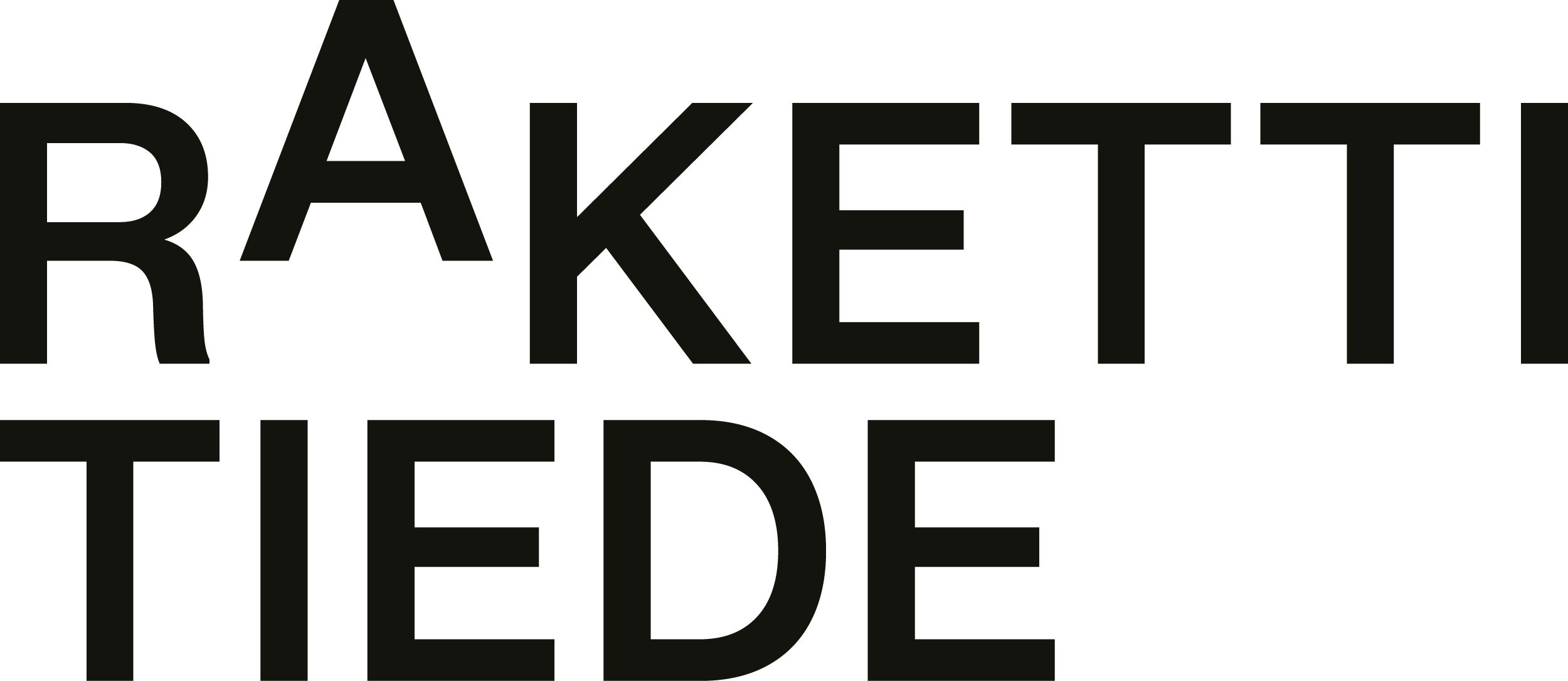A cup of green code, if you please
There's a fresh new topic heating up sustainability debates in the IT sector: green code. What is green code and how does it affect the lives of IT consultants? Alexei Danilov, Marko Saaresto and Marietta Johansson from Rakettitiede give their two cents on why software developers should be aware of green code and tell us how the topic is being discussed onboard the mother ship.
The sustainability-related concept green code is sparking debate in the IT sector in the wake of climate actions and green policies that are being consciously adopted in other industries.
Opinions, viewpoints and ideas abound while no agreed common guidelines or metrics seem to exist yet. The EU's requirements on responsibility and sustainability are bound to impact SMEs like the Rocket, particularly through initiatives like the Corporate Sustainability Reporting Directive. It’s no wonder the topic is hotly debated.
But what does Marko Saaresto, our resident philosopher-cum-rocket scientist and one of the founding five of the Rocket, think of green code?
The Rocket’s vice commodore Marko is happy about that the way things are headed: “The professionals now have a genuine management-approved reason to create high-quality, efficient code.”
“The first word that comes to mind is ‘change’. With all the sustainability requirements finding their way into the IT sector, we’re living in exciting times. For the first time, the field is collectively on the verge of defining what ‘green code’ actually means. Tackling the issue is both important and timely, as technology and coding practices are significant contributors to environmental pollution, much like traditional industries, construction and transport,” Marko says.
How has the Rocket taken part in the ongoing discussion? How is green code present in the daily lives of consultants? Below, we’ve put together five observations based on conservations had between the Rocket crew members.
#1 Efficient and beautiful code is inherently green
How is green code defined at the moment? As mentioned above, the field is still lacking a shared definition, but there have been some attempts at outlining the concept.
Green code refers to responsible code which aims at minimising the environmental effects of software. Ultimately, the concept should also be used to further determine what responsibility means in the IT sector.
Embedded systems developer Alexei considers all efficient and beautiful code to be green. Many experienced developers are already writing green code, although not always consciously.
“This is just one of many things we in the IT sector can do to contribute to a better and more sustainable tomorrow,” says embedded developer and rocket scientist #32 Alexei Danilov.
Sustainability and green code have long been discussed in the field of embedded software, where the greenness of work can be influenced in very concrete ways, such as material choices. According to Alexei, green code also encompasses qualities such as elegance, efficiency and beauty.
“In the best-case scenario, an experienced professional may already be writing green code without even realising it.” – Alexei
“If a person writes efficient and sustainable code with a long life cycle, the outcome is green code. In the best-case scenario, an experienced professional may already be writing green code without even realising it. And in any case, these things should serve as a foundation for all coding practices,” Alexei says.
#2 Consultants’ daily lives aren’t very green (yet)
Is green code present in the daily lives of Rocket consultants or is it still only a conversation starter?
“We think about green code and how it affects the work of consultants. But is it somehow reflected in the consultants’ everyday work? Probably not so much,” Marko says.
This is something Marko thinks about a lot: how could matters related to sustainability and green code be made visible in client work? And how should they actually be visible?
“We need thinkers who will take the time to consider how all of this affects software development. What do we need to do differently?” – Marko
“Sustainability needs to be considered when designing systems, just like matters related to accessibility and information security,” Marko says. Once design and implementation are out of the way, we will need standardised metrics to assess the sustainability of software and code. The field is currently testing how these things are reflected in the daily lives of professionals, but it is not enough. “We need thinkers who will take the time to consider how all of this affects software development. What do we need to do differently?” Marko says.
For example, at Rakettitiede the ideal of stringent, economical code doesn’t originate in environmental or planetary considerations, but the desire to create sustainable code one can vouch for. How should this way of thinking be changed? Are there any viable ready-made solutions that could be adopted?
The good news is that every developer or IT expert doesn’t need to know everything there is to know about green code or energy consumption to make a positive impact.
Marko has been pondering about how the topic will feature on the Rocket consultants’ to-do list in the future. The question is relevant, since the guiding principle of consulting is that the consultant is there to help the client in specific, pre-agreed matters aimed at enhancing their business success.
“In other words, is the software developer allowed to think about these things when working for a client? Or should it be the client’s job to urge the consultant to think about the environmental impact of their work? If not, the client may wonder why time is used to think about such things,” Marko says.
#3 A lack of common metrics and standards in the field
The biggest challenge in green coding is the lack of shared metrics and yard sticks in the field.
“Now’s the time to create a common set of guidelines for code and to integrate green coding into the daily grind of the software sector,” Marko says.
There have been attempts at developing common metrics: for example, Exove recently developed a service that allows organisations to assess the greenness of their IT operations. The company estimated that IT operations use around 4-10% of energy and produce 2-10% of carbon emissions globally. To put it bluntly, the impact of the IT sector shouldn’t be underestimated.
Which indicators are considered important varies from one company to the next. “Energy consumption is the first consideration, but in some cases the life cycle of a product being developed may be more important,” says rocket accelerator Marietta Johansson.
As Alexei already mentioned, a skilled and experienced developer can make a huge difference in how efficiently they’re able to code. But being able to verify that somehow is a different matter. “If you can't measure it, how will you know how green your code is? Then again, how much does a developer need to know about the measuring process?” Marko wonders.
There are green code courses and certifications that companies might require their developers to take or have. Alexei is one rocket scientist who has completed The Linux Foundation's Green Software for Practitioners certification. Obtaining the certification gave Alexei a better understanding of the terminology and practical implementations of green code.
Did you happen to learn anything new about green code, Alexei?
“I still think that green code is the starting point and underlies any good code. There is no other way if you want to implement a well-functioning and sustainable solution as a seasoned software developer,” he says.
However, all three interviewees mention collective industry policies as being more important than courses and certificates. “Clear rules and creating well-functioning metrics for each company over time are key to mainstreaming sustainability practices in the IT sector,” Marietta says.
#4 Green and responsible code provides a competitive edge for the future
Although the measurement methods or the verification processes for green code are not entirely clear, green code provides a competitive advantage for companies and individual software developers alike.
According to Marietta and Marko, discussions with clients have revealed that green code still plays a relatively minor role in the broader scheme of things. However, a shift is evidently underway, as an increasing number of requests for quotations inquire about the company's approach to sustainability and green coding, as well as how these principles are reflected in the expertise and capabilities of the consultants.
“I would like to tell clients that this is something they should start demanding from us. Change won’t happen unless we start asking questions and having discussions on topics such as sustainability and green coding.” – Marko
"I would like to tell clients that this is something they should start demanding from us. Change won’t happen unless we start asking questions and having discussions on topics such as sustainability and green coding,” Marko says.
Even though green code doesn’t yet feature prominently in discussions with clients, rocket accelerator Marietta says it can help a professional stand out and provide clients with additional value.
Having proven experience and a deep understanding of green coding also influences the kind of assignments consultants can secure and how they can win those assignments. “Both product house recruiters and clients buying consultants think about green code more and more. We need more tangible proof that consultants have measurable and verifiable green code experience,” Marietta says.
#5 Better and greener career opportunities for consultants
As a rule, the Rocket’s client companies are interested in green code and want to invest in sustainability. For those who take it seriously, specialising in green code will provide a competitive advantage in the future.
So how can a software developer jump on the sustainability bandwagon?
“If you want to improve your chances of getting interesting assignments, start paying attention to it. Ask yourself if there is some way you can already prove the greenness of your code. Could you add it to your CV?” asks Marietta, whose role it is to facilitate consultants’ access to interesting assignments. She explains that some public tenders may already require developers to have experience in green coding. “The game is ruthless, so this is an opportunity to really stand out,” she says.
A consultant codes, but as the name suggests, a consultant also consults the client. Marietta sees green coding as an opportunity for a new area of expertise: “Even if the client does not require a rocket scientist to have expertise in green coding, adding it to the work adds value for the client. We want to offer more of this deeper kind of expertise moving forward.”
At the same time, it is important to remember that even if the Rocket has a neon green future in mind, the consultants are ultimately under the client’s direction. “We can't go to the consultants and demand them to suddenly start writing green code. Any work requirements come from the clients,” Marietta explains.
However, there’s also good news: “The professionals now have a genuine management-approved reason to create high-quality, efficient code. Professional workmanship will be recognised and can no longer be replaced by buying more cheap servers. Overall, I think this trend is excellent,” Marko concludes.




